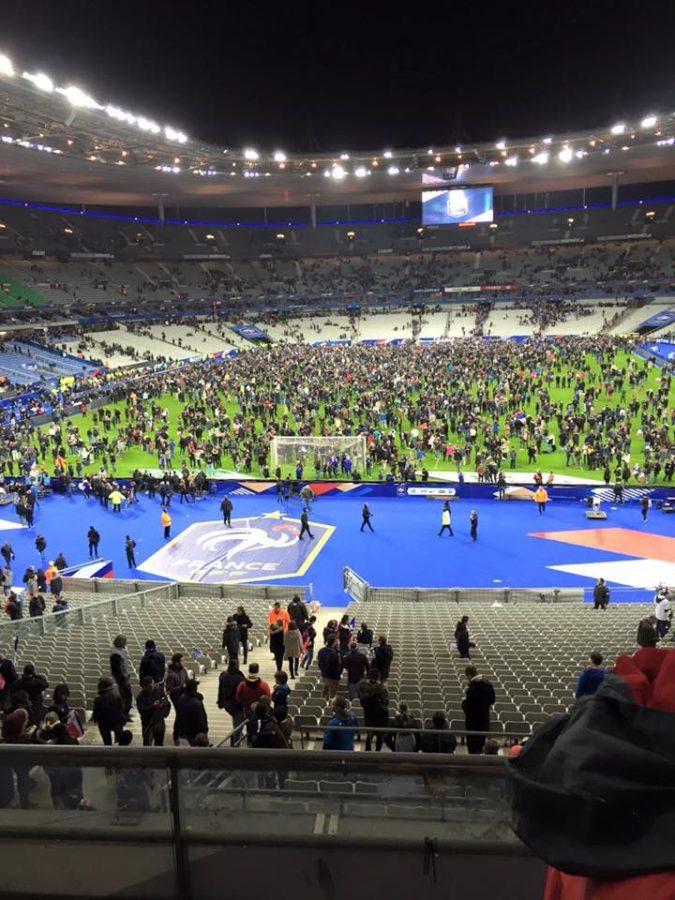Editorial: Pay attention to all terrorist attacks
Emily Wright, an ISU senior studying abroad in France, was in the Stade de France watching a soccer match when the terrorist attacks on Paris began. Wright said she heard loud noises during the game, but she only found out after the game ended when attendees rushed back into the stadium that the noises were the three bombs that had gone off at the stadium gates.
March 28, 2016
Nine days before two explosions and a suicide bomber killed at least 30 and wounded at least 230 people in Belgium, terrorists stormed a beachfront resort on the Ivory Coast, where 16 people died.
Gunmen attacked three hotels on the Ivory Coast and a car bomb in Turkey killed at least 34 and wounded at least 125 people on March 13.
Just less than a month before, Kurdish group Kurdistan Freedom Hawks or TAK, a splinter group of Kurdistan Workers’ Party or PKK, claimed responsibility for a bombing in Ankara, Turkey, that killed 28 people as a “suicide revenge mission.” There have been two attacks on Ankara within two months.
In the past year, according to The New York times, 40 ISIS terrorist attacks killed more than 1,000 people worldwide.
There have been hundreds of terrorist attacks, not all related to ISIS, since the November Paris attack that killed at least 130 people, according to Public Radio International.
In Turkey, there have been six attacks that killed at least 150.
In Bamako — the capital and largest city in Mali and fastest growing city in Africa — a November 20, 2015, gunman attack on a hotel killed about 30 people and at least 170 were taken hostage.
On January 14, multiple locations in Jakarta, Indonesia, were hit by suicide bombings and shootings, an attack claimed by ISIS.
A group of al-Qaeda supported militants attacked a hotel in Ouagadougou, capital of Burkina Faso, where at least 30 people were killed and 56 were wounded, according to Public Radio International. The government mounted a raid and freed more than 170 hostages and four assailants were killed.
An al-Shabaab group of militants killed at least 15 people after a suicide bomber detonated a bomb at the gate of a hotel in Mogadishu, Somalia, and four gunmen forced their way past a security barrier before being killed in a shootout with guards manning the hotel’s last security.
Did we hear about them? Maybe. But were there trending hashtags, Facebook profile picture filters and hourly coverage on the 24-hour news cycle for these countries?
After the Brussels attack, President Obama ordered that all the flags be lowered to half-staff. But what about the other countries that were rattled by terrorism? Why didn’t they receive prime-time coverage and trending hashtags?
“I think people assess the value of human life depending on economic strategy,” a Turkish woman says in a video on The New York Times website.
It’s not a rich or poor thing. It’s not a black people thing, a Muslim people thing, a white people thing, an Asian people thing. It’s a human thing.
Terrorism is wrong no matter to whom is terrorized. And while we may not be able to immediately aid every country in every situation, taking care to notice and acknowledge the terrible events in all areas is the first step to fight terrorism and help people.

















